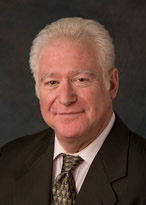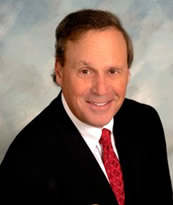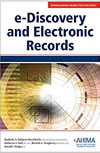Virginia Rhodes, Ed.D. has an extensive background in public schooling with over 35 years of experience in duty and standard of care: teacher, principal, hiring, supervision, evaluation and instruction in K-12 settings. Her research and role as an elected school board member in a large city district informs her expertise in school policy and district administrative and teaching functions. Dr. Rhodes provides expert witness research, reports & testimony for districts and law firms, working with both plaintiff and defense cases. Dr. Rhodes' services are available nationally and internationally, as she is culturally competent, and travels regularly, presenting at conferences and observing schools. Previous cases have included student injury & death, religious/race, disability discrimination, wrongful termination, sexual abuse, physical abuse of children with multiple abilities, administrative supervision, teacher supervision, actions of paraprofessionals including teacher assistants, security guards, and school resource officers, as well as school evaluations & recommendations for school selection in domestic cases.
Areas of school-related expertise include:
- Disciplinary policy & practices
- Standard of care and duty for administrative, teachers, paraprofessionals, support staff
- Safety issues: accidents, health & other safety and emergency procedures
- Physical and/or sexual abuse of students by staff or peers
- Teacher & administrator personnel issues: hiring/firing/discrimination/training/evaluation
- School climate, culture, SEL (social-emotional learning), trauma-informed practice
- Diversity, Equity & Inclusion (DEI) issues or incidents within both personnel and student settings
- Challenges of hIgh-poverty schools & districts
- Urban school research & new trends in teacher leadership
- Issues involving STEM, environmental, magnet, and other specialty programming
- Deposition & court testimony, document review & analysis
- Innovative & 21st-century practices vs. typical or common but unacceptable practices
View Dr. Rhodes' Consulting Profile.
By: Dr. Virginia Rhodes
What does it take to improve science performance in an inner-city high school? Could a science "immersion" strategy change motivation and interest in science? How can we meet a key strategic goal of our urban district: "All students graduate and are prepared for postsecondary education, successful careers and productive citizenship."
By: Dr. Virginia Rhodes
Creative professionals in team-based work settings value work communications skills among their colleagues. As public schools create professional learning communities and experiment with teacher-led curriculum and program development, traditional interview processes may prove inadequate for these new collaborative environments. New and creative selection models may be needed to enable teacher or other professional teams to choose candidates with the 21st century skills needed for success. In public sector environments, work rules are often highly developed and professionals are entitled to interview. Qualifications, training, experience and seniority as determinants often get reduced to transfer rights using seniority as the main or only criteria. This trend detracts from creating a competitive environment in which to attract & retain a high-quality teaching staff. Solutions can be found within existing contract parameters, however, if the attributes necessary to teach 21st Century skills are actually required to be demonstrated, not just described, in the interview process.
By: Dr. Virginia Rhodes
"All children can learn," is a catchphrase currently making the rounds in education circles, particularly in staff development activities (Pankratz & Petroski, 2003). De facto learning theory challenges the underlying assumptions of this phrase by examining how it is that learning in schools takes place. Using theoretical foundations of Dewey, Maslow, and Vygotsky, this essay will explore the fact that all children are, in fact, learning all the time, regardless of the actions of teachers, the content of the curriculum, or educational policy and practice.
By: Dr. Virginia Rhodes
Critical to a dynamic STEM school is a high level of instructional rigor. While this is true in all STEM schools, it is a particular challenge in those programs that serve populations inexperienced with high levels of rigor in their previous coursework.
By: Dr. Virginia Rhodes
OK, I did learn enough in 35 years of high school teaching, administration, and marriage to know one thing: The way to anyone's heart is through their stomach! Feed them, and they will come.
By: Dr. Virginia Rhodes
Establishing a STEM High School (Science, Technology, Engineering, & Mathematics), and the Aiken Environmental, Ohio's first public environmental high school proved to be successful strategies to increase student engagement and raise standardized scores in science. High-poverty urban students from declining academic and disciplinary environments produced significant gains on science test results and credit attainment towards graduation. Using multiple overlapping rigor and SEL strategies, students experienced "science immersion," project-based learning, and a social-emotional curriculum that emphasized personal development and team/community-building skills.













